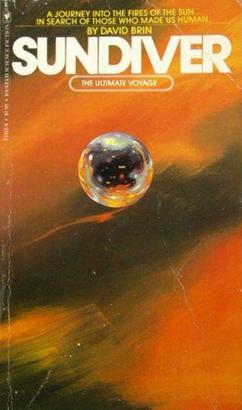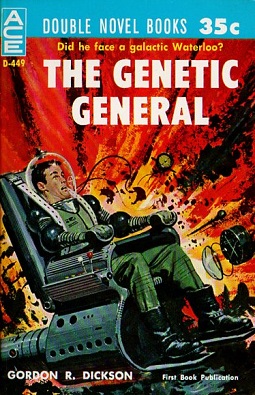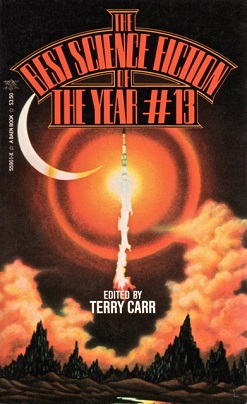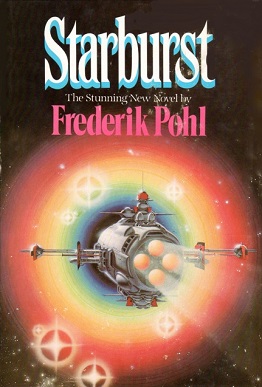
The White Plague is a 1982 science fiction novel by American author Frank Herbert about an engineered disease which kills only women. It was nominated for a best science fiction novel Locus Award in 1983.

Gordon Rupert Dickson was an American science fiction writer. He was inducted into the Science Fiction and Fantasy Hall of Fame in 2000.

Gilgamesh the King is a 1984 historical novel by American writer Robert Silverberg, presenting the Epic of Gilgamesh as a novel. In the afterword the author wrote "at all times I have attempted to interpret the fanciful and fantastic events of these poems in a realistic way, that is, to tell the story of Gilgamesh as though he were writing his own memoirs, and to that end I have introduced many interpretations of my own devising which for better or for worse are in no way to be ascribed to the scholars".
The Childe Cycle is an unfinished series of science fiction novels by American writer Gordon R. Dickson. The name Childe Cycle is an allusion to "Childe Roland to the Dark Tower Came", a poem by Robert Browning, which provided inspiration for elements in the work. The series is sometimes referred to as the Dorsai series, after the Dorsai people who are central to it. The related short stories and novellas all center on the Dorsai, primarily members of the Graeme and Morgan families.

Sundiver is a 1980 science fiction novel by American writer David Brin. It is the first book of his first Uplift trilogy, followed by Startide Rising in 1983 and The Uplift War in 1987.

Demon Princes is a series of five science fiction novels by Jack Vance, which cumulatively relate the story of Kirth Gersen, a man trained by his grandfather to exact revenge on five notorious interstellar crime bosses, collectively known as the Demon Princes, who carried the people of his village off into slavery during his childhood. Each novel deals with his pursuit of one of the five Princes.

Majipoor Chronicles is a collection of ten stories by Robert Silverberg, published in 1982. The stories are all part of the Majipoor series.

The Alternate Asimovs (1986) is a collection of early science fiction drafts by American writer Isaac Asimov. Asimov mostly threw away early drafts. Just a few survived and were included in this anthology.

Dorsai! is the first published book of the incomplete Childe Cycle series of science fiction novels by American writer Gordon R. Dickson. Later books are set both before and after the events in Dorsai!.

Saraband of Lost Time is a science fiction novel by American writer Richard Grant, published by Avon Books in 1985. It is his first novel. Saraband of Lost Time placed eighth in the annual Locus magazine poll for best first novel, and received a special citation from the Philip K. Dick Award judges.

Banquets of the Black Widowers is a collection of mystery short stories by American writer Isaac Asimov featuring his fictional club of mystery solvers, the Black Widowers. It was first published in hardcover by Doubleday in September 1984, and in paperback by the Fawcett Crest imprint of Ballantine Books in June 1986. The first British edition was issued by Grafton in August 1986.

The Best Science Fiction of the Year #13 is an anthology of science fiction short stories edited by Terry Carr, the thirteenth volume in a series of sixteen. It was first published in paperback by Baen Books in July 1984, and in hardcover and trade paperback by Gollancz in December of the same year.

The Opium General and other stories by Michael Moorcock was a hardcover collection of novellas, short stories, and articles. It was published in 1984 by Harrap. It was a collection of new work and rare items.

The Final Encyclopedia is a science fiction book by Gordon R. Dickson published in 1984. It is part of the Childe Cycle series. The Final Encyclopedia transitions from the militaristic action-adventure of the earlier books in the Childe Cycle to a philosophical commentary on the evolution of humankind.

Octagon is a novel by Fred Saberhagen published in 1981.

A Rose for Armageddon is a novel by Hilbert Schenck published in 1982.
Anatomy of Wonder — A Critical Guide to Science Fiction is a reference book by Neil Barron. It covers hundreds of works of science fiction.

Starburst is a science fiction novel by American writer Frederik Pohl, published in 1982. It is an expansion of his 1972 novella The Gold at the Starbow's End.

Thousandstar is a novel by Piers Anthony published in 1980.
Sabella or The Blood Stone is a novel by British writer Tanith Lee, first published in 1980.















